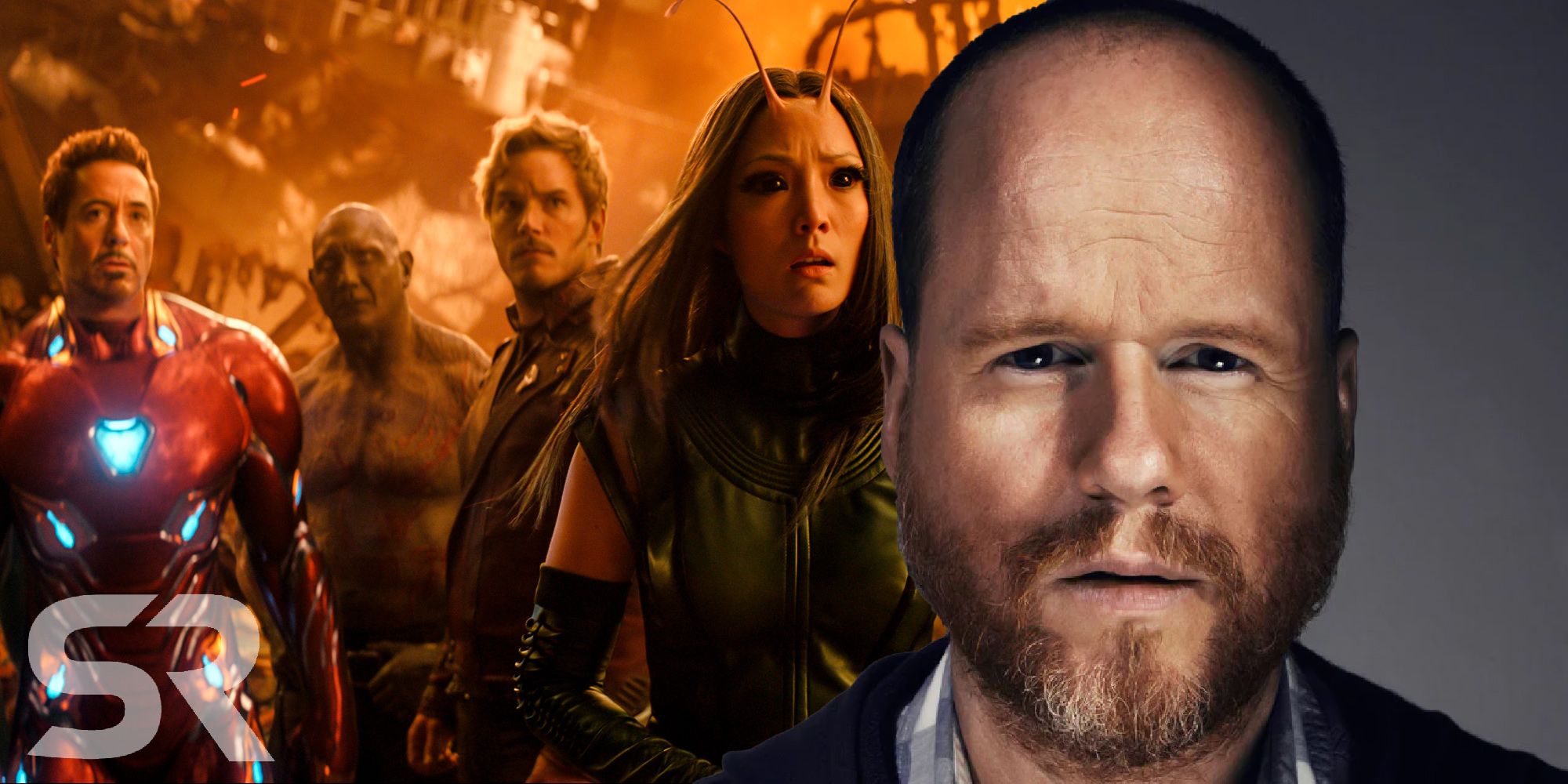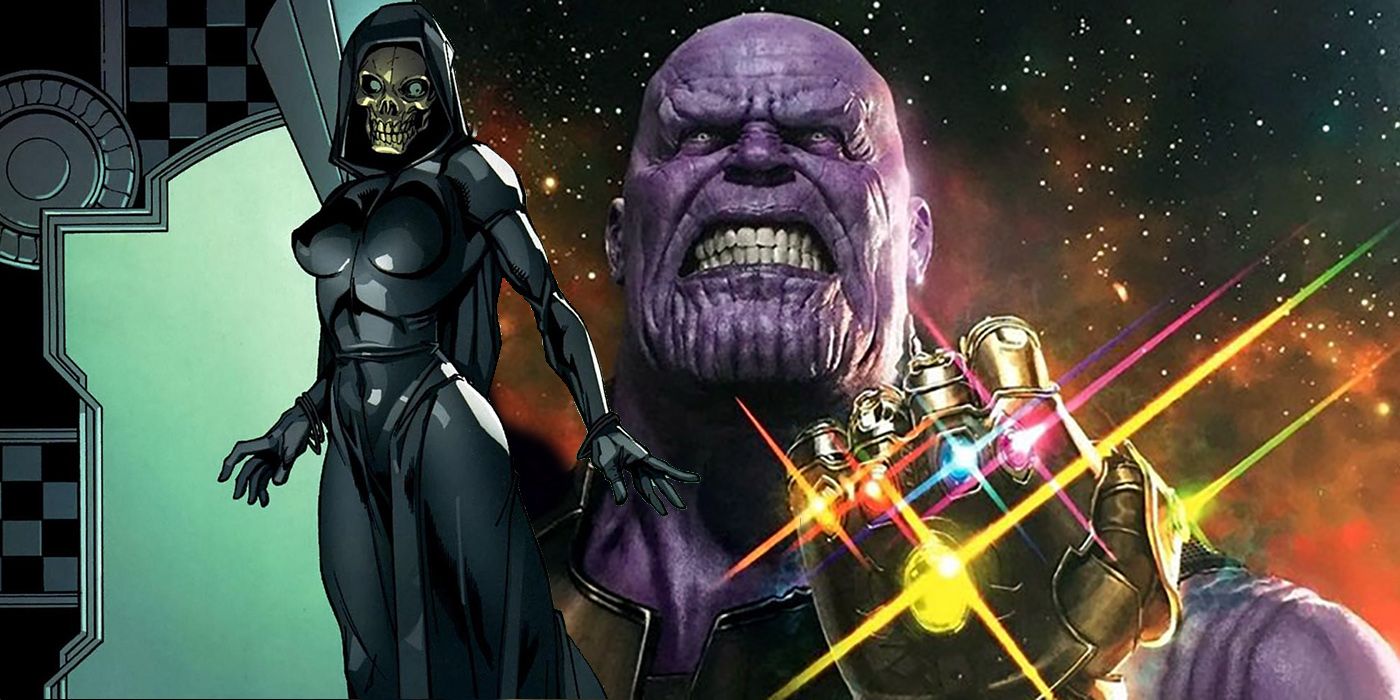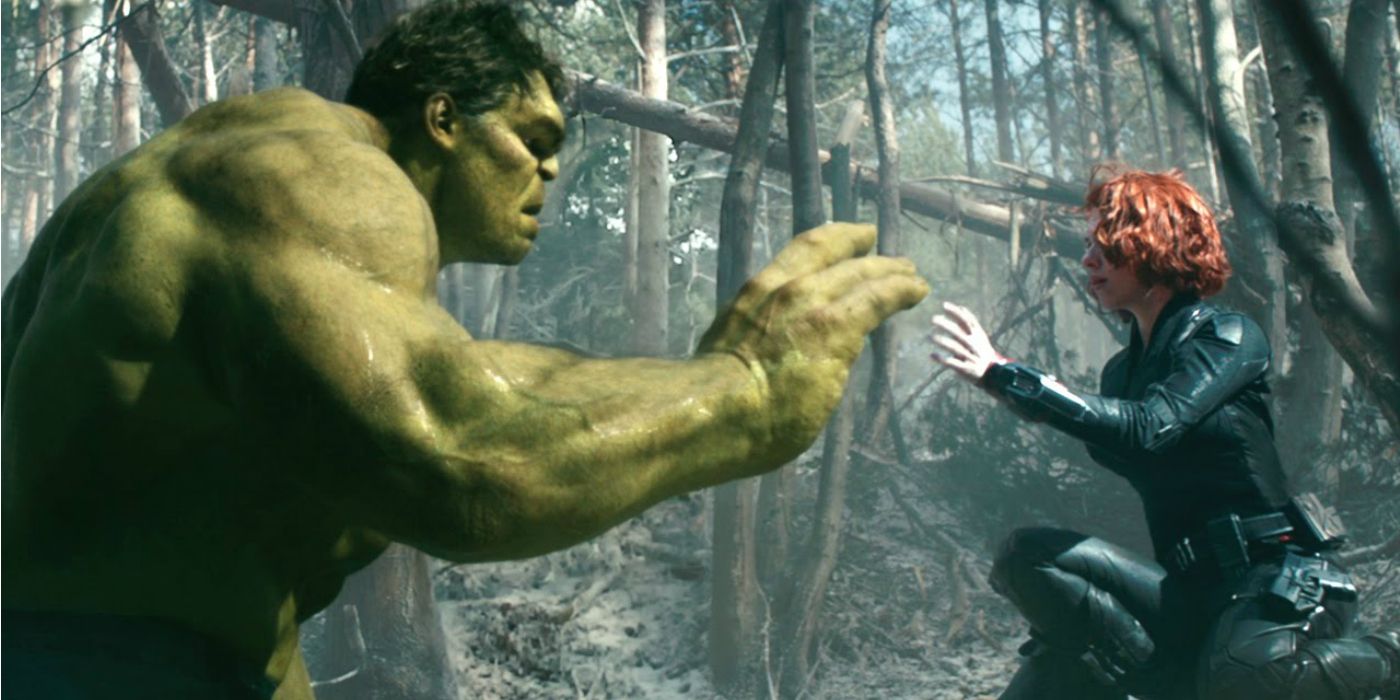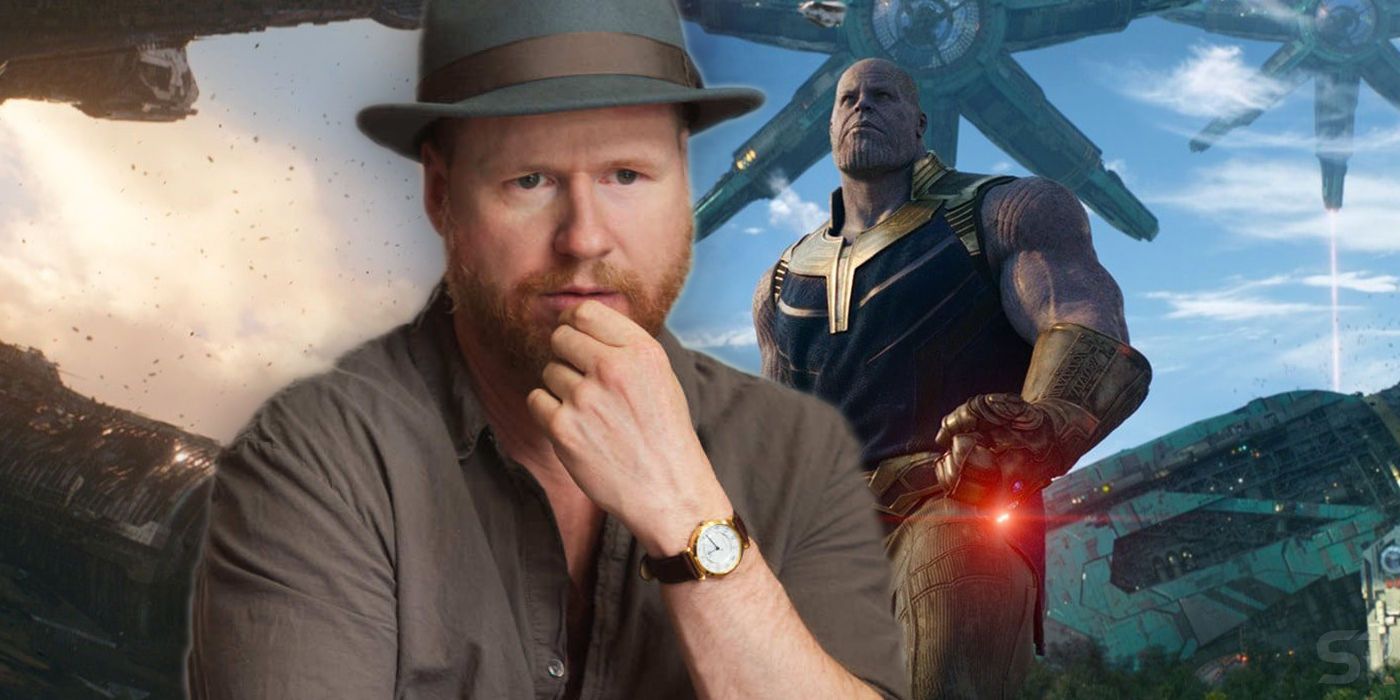
What would Avengers: Infinity War look like if the movie had been made by Joss Whedon as originally planned? The director was responsible for The Avengers, the first major team-up in the Marvel Cinematic Universe. Beginning with Iron Man in 2008, Marvel spent four years carefully laying the groundwork for this major event. The 2012 film capped off Phase 1, bringing the MCU’s core heroes together for the first time. Praised by fans and critics alike, The Avengers was proof that Marvel’s reach did not exceed its grasp.
In the wake of The Avengers' immense success, Whedon was positioned to continue his work with Earth’s Mightiest Heroes. The movie may have largely defined comic book films for close to a decade, but its sequel wasn’t nearly as well received. Something of a muddled mess, Avengers: Age of Ultron lacked both the charm and cohesion of its predecessor. Despite being the most highly anticipated MCU movie up until that point, it fell flat for many viewers. Although the film was a box office hit, it can be argued that Avengers: Age of Ultron doesn't even belong in Phase 2. It was assumed that Whedon would be writing and directing the third Avengers installment as well. However, shortly after the sequel was released, it was announced that he would not be helming the next movie in the franchise.
Avengers: Infinity War was soon handed over to Joe and Anthony Russo. After bringing audiences one of the MCU's best entries with Captain America: The Winter Soldier, the duo followed that up with another fantastic addition, Captain America: Civil War. Christopher Markus and Stephen McFeely, who handled script duties on all three Cap films, joined the Russo brothers, crafting the story for Avengers: Infinity War. The directing/screenwriting teams would continue to collaborate for Avengers: Endgame.
Both Whedon and the Russos come from a television background. Whedon is best known for his magnum opus, Buffy the Vampire Slayer, and its spinoff Angel, as well as the cult hit Firefly. The Russos have directed countless episodes of several beloved comedies, chief among them, Arrested Development - which has an Easter egg in Avengers: Infinity War - Community, and Happy Endings. It’s also worth noting that Whedon would’ve written the script, as well as directed the movie, while the Russos shared their massive workload with Markus and McFeely. The larger brushstrokes of the Marvel Cinematic Universe are at least somewhat mapped out by Marvel’s chief creative officer, Kevin Feige. However, every MCU film is obviously a product of its writers and directors, so while certain story beats may have played out the same way regardless of who helmed Avengers: Infinity War, the journey getting there certainly would’ve looked quite different.

Because Whedon declined to direct Avengers: Infinity War so early on the process, little is known about what his version of the film would’ve been like. While Thanos was set up to play the villain of the piece all along, it’s likely the Mad Titan himself would’ve been much closer to his comic counterpart. Far more depth has been added to the character over the years in stories such as Jason Aaron and Simone Bianchi’s excellent Thanos Rising, but The Infinity Gauntlet’s villain is pretty straightforward. The classic comic storyline, written by Jim Starlin, and penciled by George Pérez and Ron Lim, also saw the Mad Titan seek to decimate half the population. However, his motives weren’t even remotely altruistic. Thanos wreaked havoc on the universe in the hopes of impressing the embodiment of Death, with whom he was madly in love.
While the Russo brothers have been celebrated for making the character one of the MCU’s more complex villains, Whedon has explained he wasn’t actually sure what to do with Thanos. He described Thanos as “the ultimate Marvel villain” and specifically cited his affair with Death as something he loved about the Mad Titan. With that in mind, it seems probable this would have been a major plot point, had Whedon written and directed the movie. While it certainly could’ve made him a less nuanced, more mustache-twirling Big Bad, it can be argued that Thanos’ actual Avengers: Infinity War plan didn’t make a whole lot of sense.
Ultron may not have been a great villain, but while Whedon didn’t introduce Tom Hiddleston’s Loki, he certainly helped mold him into one of the MCU’s finest. Whedon has also proven more than once with Buffy and Angel that he is quite adept at creating villains viewers can fall in love with. One of the most successful ways he has done this is by humanizing them. Even if Thanos had been more obviously evil in Whedon’s version, if done well, his love for Death could’ve served as that relatable element. Perhaps that would've made his actions less easy to justify, but of course, they are unjustifiable anyway. Whedon had been setting up his version of Thanos, but hadn’t actually had the opportunity to do much work with the character. The Russos did use a markedly different approach and Whedon has since admitted their take on the Mad Titan was better than his own would’ve been.

One glaring omission from the films after Whedon stepped away is the continuation of Natasha Romanoff’s romance with Bruce Banner. While many fans felt the love story was shoehorned and did both characters a disservice, it’s highly probable it would’ve been further explored in the third Avengers film, whether the two stayed together or not. The fallout from that relationship was almost dealt with in Avengers: Infinity War, but the scene wound up on the cutting room floor. Most fans are grateful this plot point has been all but forgotten, but since Whedon focused on it so heavily - infamous “monster” line and all - it seems unlikely he would’ve just dropped it. Also, regardless of Whedon’s treatment of Natasha in Avengers: Age of Ultron, it was also Whedon that redefined the character in The Avengers after her terribly disappointing debut in Iron Man 2. Plus, the Russos ultimately failed Black Widow anyway.
Speaking of the Jade Giant, Whedon was the first to really utilize the character in a way that worked well in the context of the Marvel Cinematic Universe. Edward Norton made a fine Bruce Banner in The Incredible Hulk, but the film is regarded as one of the MCU’s worst entries. However, the recasting of Mark Ruffalo signaled a new beginning for the character in more ways than one. Whedon was the first to truly marry Bruce’s personality with the Hulk's inexorable rage, giving fans the perfect explanation with, “That’s my secret Cap. I’m always angry.” Ruffalo’s version may not have gotten a solo movie, but he has had a clear arc in the MCU and that began with Whedon. It’s safe to assume the Hulk himself, rather than Banner, would’ve played a more prominent role in Whedon's Avengers: Infinity War.
Another largely abandoned aspect is the MCU's supporting cast of human characters. This is understandable, considering by the time Avengers: Infinity War was made, the filmmakers had enough superheroes to juggle without including them. However, Whedon may have kept slightly more focus on this element. He also might have chosen to develop the Black Order a bit further. Like with his portrayal of Thanos, he could have leaned more heavily on the source material. Thor probably would’ve had significantly less to do and Steve Rogers would’ve been different, to say the least. In fact, it’s fair to say Whedon never truly understood Captain America. He basically ignored all of Cap’s character development in Captain America: The Winter Soldier, in order to show him in a more comedic light. Because the Russos were responsible for Steve's evolution, their iteration of him always felt more authentic.
Another huge unknown is who would’ve survived the movie. Avengers: Infinity War was always going to end with Thanos’ snap. The Russo brothers created a tightly-plotted, nonstop thrill ride. Their movie didn’t leave the audience much time to breathe, which worked brilliantly for this story. Whedon’s version might’ve moved a little bit slower, rather than dropping viewers straight into the action, and could have potentially been more character-driven. As much as some fans have grown bored of the auteur's quips, he deserves much of the credit for the tone of the modern MCU, which he set with The Avengers. That said, for good or bad, Thanos might’ve had a few more zingers with Whedon behind the wheel.

Avengers: Age of Ultron isn’t the MCU’s worst entry, and though undeniably ambitious, it might be the most forgettable. However, there is an argument to be made this wasn’t all Whedon’s fault. He not only had the mammoth task of juggling the core characters and introducing a few key new ones, but he also had Marvel executives weighing in on what future plot points he needed to set up with the film. This certainly added to the overall disjointed feel of the narrative, because despite writing and directing, Whedon wasn’t making all of his own choices. Even the director’s trademark witty banter had begun to feel tired, perhaps because Whedon himself was exhausted by making Avengers: Age of Ultron. He has admitted to crumbling under the pressure and not feeling up to the job of going even bigger in the next movie, which would include many more characters.
So, Whedon’s reluctance to return for Avengers 3 stemmed from both creative differences and pure exhaustion. Handling both script and direction is a heavy workload for anyone, but particularly with such a massive blockbuster. Despite this, Whedon has since revealed he’s a bit jealous of what the Russos accomplished. By the time they helmed Avengers: Infinity War, the brothers were comfortable integrating such a large cast of characters, as they had already managed a similar task with Captain America: Civil War - though of course, the third Avengers film was on an even grander scale.
Avengers: Age of Ultron may have disappointed fans, but The Avengers still holds up remarkably well. It remains not only one of the MCU’s best entries, but also one of its most vital. Considering how taxing the sequel was for Whedon and the undeniable success of the Russos’ Avengers films, it's clear everything worked out for the best. That is certainly not to say Whedon’s take on the material would have been bad, though his work on Justice League proves that his style doesn’t always translate well to characters he hasn’t created. Despite having great comic runs on Astonishing X-Men and Runaways, the filmmaker is generally at his best when playing in his own sandbox.
from ScreenRant - Feed https://ift.tt/3gBMYUQ

0 Comments